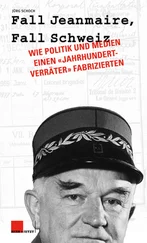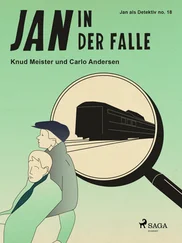“I don’t want to eat.”
“Come on, you must eat something to fight the illness.”
“I’ll be all right.”
I knew she would be busy that evening, because it was Friday. After she left, I drank some orange juice and then lay back and tried to fall asleep. My throat felt slightly better, but the fever was still raging. I regretted not having gone to the herb store earlier to get some ready-made boluses. The room was quiet except for the faint drone of a mosquito. The instant it landed on my cheek, I killed it with a slap. I was miserable and couldn’t help but miss home. Such a feeling hadn’t visited me for a long time — I had always managed to suppress my homesickness so that I could make it through my daily routine. A busy man cannot afford to be nostalgic. But that evening the image of my mother kept coming to mind. She knew a lot of folk remedies and could easily have helped me recover in a day or two, but she would have kept me in bed for longer to ensure that I recuperated fully. When I was little, I used to enjoy being sick so she could fuss over me. I hadn’t seen her for two years now. Oh, how I missed her!
As I was dozing off, someone knocked on the door. “Come in,” I said.
Huong came in again, this time holding a steaming bowl. “Sit up and eat some noodles,” she told me.
“You cooked this for me?” I was amazed that it was wheat noodles, made from scratch, not the rice noodles we usually ate. She must have guessed that, as a northerner, I would prefer wheat.
“Yes, for you,” she said. “Eat it while it’s hot. It will make you feel better.”
I sat up and began eating with chopsticks and a spoon. There were slivers of chives and napa cabbage in the soup, along with some dried shrimp and three poached eggs. I was touched and turned my head away so that she wouldn’t see my wet eyes. This was genuine home cooking from my province, and I hadn’t tasted anything like it for two years. I wanted to ask her how she had learned to make noodles like this, but I didn’t say a word; I just kept eating ravenously. Meanwhile, seated on a chair beside my bed, she watched me intently, her eyes shimmering.
“Huong, where are you?” Lili cried from the living room.
“Here, I’m here.” She got up and left, leaving the door ajar.
I strained my ears to listen. Lili said, “A man at the Rainbow Inn wants a girl.”
“Wanping’s ill and can’t drive today,” Huong replied.
“The place is on Thirty-seventh Avenue, just a few steps away. You’ve been there.”
“I don’t want to go tonight.”
“What do you mean, you don’t want to go?”
“I should stay and take care of Wanping. Can’t Nana go?”
“She’s busy with someone.”
“Can you do it for me?”
“Well,” Lili sighed, “okay, only this once.”
“Thank you.”
When Huong came back, I told her, “You shouldn’t spend so much time with me. You have things to do.”
“Don’t be silly. Here is some vitamin C and aspirin. Take two of each after the meal.”
That night she checked on me from time to time to make sure I took the pills and drank enough liquid and was fully covered with a thick comforter of hers, so that I could sweat out my flu. Around midnight, I fell asleep, but I had to keep getting up to pee. Huong had left an aluminum cuspidor in my room and told me to use it instead of going to the bathroom, so that I wouldn’t catch cold again.
The next morning, my fever had subsided, though I still felt weak, not as steady on my feet as before. I called Jimmy and said I would definitely come to work that day, but I didn’t get there until after ten. Even so, some of my fellow workers were amazed that I had reappeared so quickly. They must have thought I had caught something more serious, like pneumonia or a venereal disease, and would remain in bed for a week or so. I was glad there was not a lot of work piled up on my ironing table.
A week later, some sewers left the factory and we all got busier. There were twenty women at the garment shop, and with two or three exceptions, they were all married and had children. Most of them were Chinese, though four were Mexican. They could come and go according to their own schedules. That was a main reason they kept their jobs, which paid by the piece, and not very much. Most of them, working full-time, made about three hundred dollars a week. Like them, I could keep a flexible schedule as long as I didn’t let work accumulate on my ironing table or miss deadlines. I must admit that our boss, Mr. Fuh, was a decent man, proficient in English and knowledgeable about business management; he even provided health-care benefits for us, which was another reason some of the women worked here. Their husbands were menial workers or small-business owners and couldn’t possibly get health insurance for their families. Like the other two young pressers, Marc and Danny, I didn’t bother about insurance. I was strong and healthy, not yet thirty, and wouldn’t spend three hundred a month on that.
We had been getting more orders for women’s garments lately, so I went to work earlier, around seven. But I took long breaks during the day so that I could sit or lie down somewhere to rest my back and legs.
Our factory advertised for some sewers to replace the ones we’d lost, and one evening I brought a flyer back to the house. Lili was with a client in her room, but at dinner I showed it to Huong and Nana and said I would try to help them get the jobs if they were interested.
“How much can a sewer make?” Nana asked.
“About three hundred a week,” I said.
“My, so little. Not for me.”
Huong broke in. “Does your boss use people without a work permit?”
“There’re some illegal workers at the factory. I can put in a word for you.”
“If only I could sew!”
Her words made my heart leap. I went on, “It’s not that hard to learn. There are sewing classes downtown. It takes three weeks to graduate.”
“And lots of tuition too,” added Nana.
“Not really — three or four hundred dollars,” I said.
“I still owe the Croc a big debt, or I would’ve quit selling my flesh long ago,” Huong muttered. Besides smuggling people, the man also operated gambling dens in Queens, one of which had recently got busted.
I said no more. For sure, a sewer made much less than a prostitute, but a sewer could live a respectable life. However, I could see Nana’s logic — her work here was more lucrative. Sometimes she made three hundred dollars in a single day. My housemates spent a lot of time watching TV and listening to music when they had no clients, but how long could they continue living like that? Their youth would fade someday. Then what would they do? I remained silent, unsure if I should tell Huong what I thought in Nana’s presence.
A slightly overweight white man with wavy hair came out of Lili’s room. He looked angry and muttered to himself, “Cheap Chinese stuff, fucking cheap!” Throwing a fierce glance at us, he turned and left. The women’s clients were mostly Asian, and occasionally one or two Hispanics or blacks. It was rare to see a white john here.
Lili came out of her room, sobbing. She collapsed on a chair and covered her face with her long-fingered hand. Huong put a bowl of wontons in front of her, but Lili fell back on her chair, saying, “I can’t eat now.”
“What happened?” Nana asked.
“Another condom break,” Lili said. “He got furious and said he might’ve caught some disease from me. He paid me only sixty dollars, saying I used a substandard rubber made in China.”
“Was it really Chinese?” I asked her.
“I have no clue.”
“It might be,” Huong said. “Mrs. Chen always gets stuff from Silver City.”
Читать дальше












